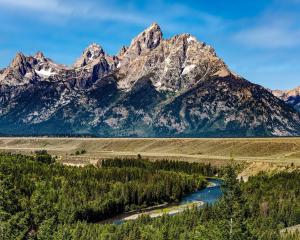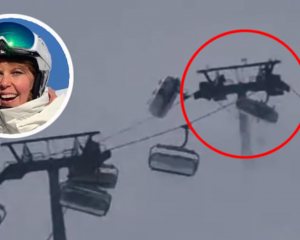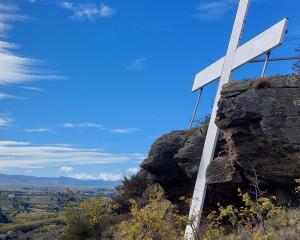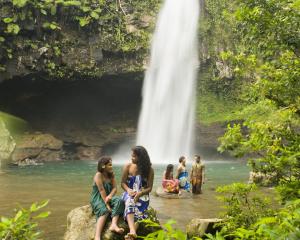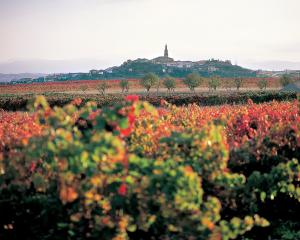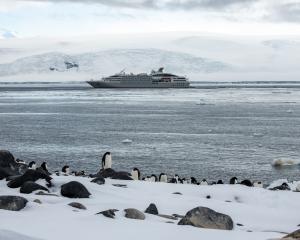A caravan holiday in the United States took quite some organising, as Warren Judd discovered.
Is Auckland New Zealand?
Most of us would say it's only a limited and rather atypical part.
Yet when we think of America, it's mostly New York, San Francisco, Chicago, LA (and possibly Springfield, Disneyland and Hollywood) that spring to mind.
However, big cities are no more typical of the United States than Auckland is of New Zealand.
I first came to appreciate this in the late 1970s and early '80s when I spent a few years working in the US.
For much of the time, I lived in Boston, Massachusetts, at the northern end of the busy eastern corridor that runs down to Washington.
To my surprise, when driving around the state or down to New York city, most of the route was through forest.
Massachusetts had once been extensively farmed, like New Zealand, but with the rise of large-scale agriculture in California's Central Valley and the Midwest after World War 2, farming in the cool northeast became uneconomic and the land reverted, surprisingly quickly, to forest.
Much of the busy industrial northeastern US is now more forested than most of sparsely populated New Zealand!
Late in my stay, I drove from Boston to Santa Cruz, California (south of San Francisco) via a route that gave me a glimpse of what a vast and diverse country the US is and I decided it would be nice to have a more thorough look sometime.
That sometime was a long time coming, but in September 2010 and somewhat retired, I rented out my house in north Auckland for a year and took off with a friend, Riette Ferreira.
After a few days in LA (far from the most exciting of American cities), we took an excellent train trip north to Portland, Oregon, where I had friends.
Portland, at a latitude similar to Dunedin's, is a splendid modern city somewhat larger than Auckland, a place where we spent several enjoyable weeks organising our American sojourn.
I was primarily interested in exploring small-town America together with rural and wilderness areas.
Byways more than highways.
For me cities are less interesting.
They always contain lots of shops, people, traffic and bustle and there is a certain sameness about them.
I wasn't wanting to buy stuff or be entertained.
I was wanting to absorb as much about the US as I could for up to a year.
We'll come back to that length-of-stay business presently.
To do what I wished, camping with our own car and caravan (Americans call them travel trailers) seemed the best option.
Long-term rentals were expensive and we were far from rich.
First problem, you need money.
Could you do everything with a New Zealand credit card?
I doubt it.
Big purchases (vehicles) would be difficult and even buying petrol may not work because as a security measure you often have to enter your home zip code as well as a pin, and US zip codes are five digits long.
To set up a US bank account, you require a solid local address.
Our friends were happy to let us use their address and recommended us to a small local bank.
We were completely honest with the bank and they allowed us to open a cheque account and issued us with a Visa debit card.
When we joined, the owner/president bought us a bottle of wine and later sent us a welcome card signed by most of the staff!
Our banker was always extremely helpful no matter where I was in the country and my accent over the phone served as an excellent ID.
Second problem.
If you don't have a provable residential address in the US, you can't register a vehicle, although you can buy one.
Could I buy a car and travel trailer, have our friends register them in their name but lease them back to me for a nominal sum while I insured them?
We thought maybe, until the friends spoke to their insurance company who said that if we had a vehicle accident, our friends would also probably be sued.
While we have ACC here, which prevents the great evil of suing, suing over vehicle accidents is a big deal in the US.
Lawsuits will generally be for millions.
That threat was enough to scare our friends off, so it was on to plan B, which I'd devised in New Zealand.
We took a train to Vancouver, Canada where they are happy to sell cars to visitors.
I purchased a 2001 Dodge Durango (a 4WD SUV) with 188,000km on the clock for $C5000 ($NZ5700) plus 15% sales tax.
Insurance, an essential because of the suing issue (we bought $2 million liability insurance), was a shock.
In British Columbia vehicle insurance is done in the same government office as registration, and even with a 40% discount, it was $C2400.
However, it provided cover in the US as well as Canada.
(We qualified for the 40% discount because I'd taken an insurance company letter attesting to my lack of claims in New Zealand).
But we weren't done with vehicle registration issues.
Back when our friends had been considering registering vehicles for us, I'd bought a caravan in Oregon.
They are cheaper there than in Canada and the selection is better.
Also in Oregon, there's no sales tax.
What to do?
It stymied us for days, and then the agent we'd purchased it from came up with a cunning plan.
The caravan had valid state plates which he was supposed to replace with temporary plates.
Because it was still part of his inventory, he could get new registration stickers for it, so I paid him to do that before he transferred ownership to me.
And he generously said he could ''forget'' to remove the state plates with their new stickers.
So although the travel trailer wouldn't actually be registered in my name, it would carry real plates with current registration stickers.
And with plates we could insure the trailer.
For comparison with New Zealand, I bought a 2007 22ft (6.7m) Nash four-season travel trailer for $US10,500 ($NZ12,400).
It was braked, had tandem axles, awning, underfloor gas furnace, air conditioner, fancy electrical system etc, all in excellent condition.
A similar setup here would cost $NZ50,000-plus.
I later sold the caravan back to the dealer for $8000.
Having spent all this money, for how long could we travel? We'd obtained 10-year multiple entry visas from the US embassy in Auckland (cost $200).
However, you are only permitted to stay six months continuously in the US. Could you have that six months extended?On arrival in LA, immigration told us: ''It's easy. Just go to Mexico for a day and you get another six months when you return''.
Research online in New Zealand had suggested it wasn't that straightforward.
When we drove the car into the US from Canada, we again inquired at the border.
''Well, you can't go to Mexico or Canada for a few days. You have to leave the western hemisphere altogether and then come back sometime later.''
Completely contradictory information!
Eventually, with my six months running out in Tucson, I spent half a day visiting relevant government agencies and eventually paid another $200 to make written application to extend my stay.
Had I been turned down, my 10-year visa would have been revoked and I'd have had to leave quite promptly.
But the other way, exiting and re-entering, could see you stuck on the wrong side of a border unable to get back.
Fortunately, my stay was extended for a second six months but I doubt that longer would be possible in the US, although you could then go into Canada for up to six months then back to the US etc.
In my careful planning, I'd overlooked a further detail: winter.
Through almost all of the US (let alone Canada) the ground freezes and most campgrounds only open from May until September.
Only in southern coastal areas and southern Texas, New Mexico, Arizona, California and the west coast do most stay open year-round.
Campgrounds cost from $US15-$60 a night.
State and national parks are cheaper than private campgrounds.
However, you can park your caravan free for a night in most Walmart parking lots, and in the unpopulated western half of the country, you can camp free on Bureau of Land Management lands, which are extensive.
Riette had to return to New Zealand in January 2011, so I continued alone, eventually selling the caravan and sleeping in the wagon.
Nowhere did we feel unsafe. Americans are extremely affable.
We bought food in supermarkets (generally a bit cheaper than here) and travelled wherever the weather allowed.
You need a GPS for travel in cities and your AA card gives you AAA membership there with free maps.
Petrol varied from $US2.59-$4.80 a gallon (4.5 litres) with an average of $3.50.
Oil changes (including oil, filter and labour) cost $20-$35.
Travelling there for a year probably cost not a lot more than living here for a year, especially offsetting costs with the house rental.
While 10 months sounds an inordinate amount of time, New Zealand is the size of an average state and there are 50 of them, so in a year (and 35,000km) you still only scratch the surface.
And the vegetation, the disposition of the land, the difference in houses, the widespread aridity means there are few places in the US where you think ''this might be New Zealand''.
• Warren Judd is a former editor of New Zealand Geographic.
• Next week: Warren Judd explores Oregon.




